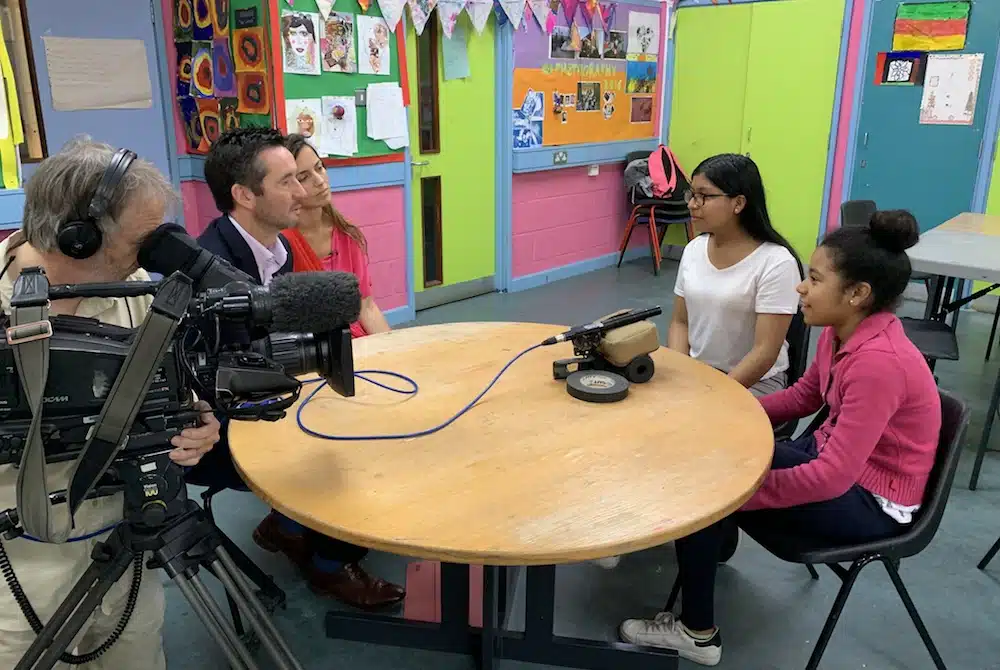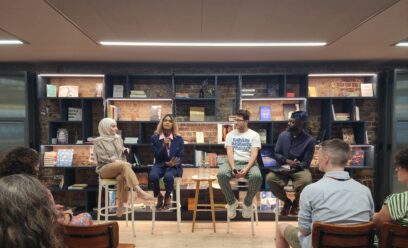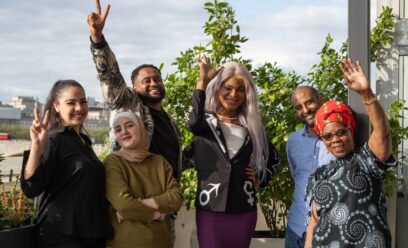5 ways to prepare for that all-important media interview
Posted by IMIX on July 24, 2019
Interviews with the media provide an excellent opportunity to get across your message direct to your audience unedited. Done well, their impact can be huge, reaching an audience of thousands or even millions, helping challenge stereotypes and to raise awareness of an event or campaign that is incredibly important to you.
They can also appear to be an incredibly daunting experience. And whether you’re reading this ahead of your first interview or your hundredth, I’ll let you in a little secret – that feeling never really goes away.
However, with the right practice and preparation interviews will become easier than you think and can become a relatively enjoyable experience. Nothing beats that buzz when those donations for your fundraiser or signatories to your petition start flooding in after a successful interview.
In this blog, we’ll be sharing five simple top tips that will help you on your way to achieving success in an interview situation.
1. What do you want to achieve? Know your aim and key messages
It sounds obvious, but many interviews don’t go well because people haven’t fully considered exactly what they want to achieve from it, and more importantly how they will communicate this.
In our sector, there is a lot that we want to speak about. The issues we deal with daily are incredibly complex and varied. However, interviews are short (usually), audiences have limited attention spans and you simply won’t have the opportunity to say everything you would like to.
So before you pitch for or accept the interview, consider exactly what you want to achieve. Write down your one key aim, and then three key, short, simple and clear messages which you want listeners or watchers to remember, and that will help you achieve your aim.
Do the interview well, and you will be invited back time and time again, giving you the opportunity to raise awareness of all those other important issues you hold dearly.
2. Be confident. You are the expert
A journalist or producer’s job is to create compelling content that their audience wants to consume.
So, if they’re interested in speaking with you, there is a good chance they think you’ve got something very important to say. They simply wouldn’t give you the opportunity if not. It’s their job on the line. Take confidence from this.
Unless a specialist radio show or print outlet, the audience will have very little information on the issue you’re speaking about. The simplest details can prove eye opening and informative, and whether you’re speaking from direct experience of the hostile environment, or working in a charity on the frontline, no one can dispute your own experiences. You are the expert.
3. Keep it simple. Do not use acronyms or jargon
Within the bubble of our sector and the colleagues we work with, on a daily basis we use acronyms, jargon and other terms that make sense to us. ESOL, SVPRS, LAASLO, Section 95 support. Even terms such as asylum seeker, refugee and leave to remain.
They make sense to us, but for the vast majority of your audience they will make no sense whatsoever. Use them in an interview and you will also lose your audience.
So use simple language that is easy to understand and keep it concise. Imagine sitting down for a cup of tea with a family member or friend that has no idea what you do. How would you explain your issue to them? Use this as a template for your interview and you won’t go far wrong.
4. Paint a picture – use experience and anecdotes
Facts, statistics and key messages are all important and add value to an interview. What makes an average interview excellent and memorable however, is making it rich with experiences that people can understand and relate to.
Adding personal experience and anecdotes to an interview is one such way to achieve this, helping bring it to life and engage a listener or reader.
But please do only share what you are comfortable to do so. Most interviews will be published online too and can be seen from anywhere. Consider what you’re willing to share before an interview beforehand.
5. Preparation is key
Like most other things in life, being interviewed is a skill. The more you practice, the better you’ll be at it and more confident you will feel.
Before an interview, speak to the producer. They may not give you exact questions, but you’re certainly within your rights to ask why they’re interested in the topic, what things they’re likely to ask about, the type of interview it will be and whether you’ll be interviewed alongside anyone else. This also gives you an opportunity to establish any boundaries or ‘no go’ areas, particularly if speaking about sensitive personal experiences.
Use this information to build a set of questions they are likely to ask to secure what they want, sit down with a family member or friend and get them to interview you. Ask yourself what the audience may want to know. Hammer home those key messages, and if your friend doesn’t an understand an answer, make it simpler.
If travelling for an interview, ensure you’ve planned to arrive in plenty of time and from when you meet with a journalist or arrive at location for an interview, until you leave, stay in interview mode – even if not live on air. And if you’re doing it from home, make sure you won’t be disturbed or else this may happen.
We hope these tips will help guide you through those all important media interviews and help you feel confident in your skills and experience. If you’re interested in learning more, get in touch to find out about our training courses.



